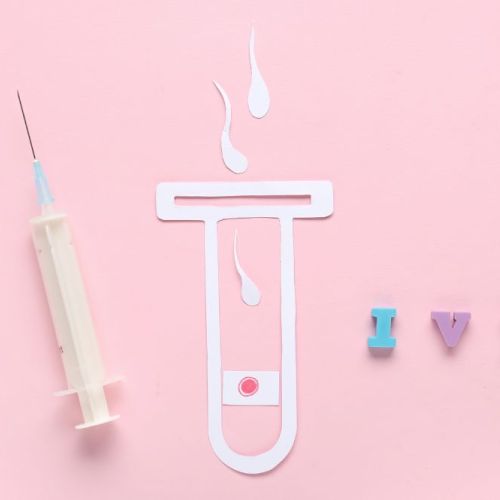How to Increase Fertility in Women

When you feel ready to start a family but find that getting pregnant isn’t happening right away, it’s natural to search for suggestions on how to increase fertility in women. Some reasons for infertility may be beyond your control, but there are some lifestyle changes that may help improve your chances of getting pregnant. The experts at the Center for Reproductive Health can provide comprehensive information on things you can do to improve your chances of attaining a healthy pregnancy.
Strive to Attain a Health Weight
The amount of fat stored in your body can have an impact on hormone levels. If you’re either overweight or underweight, it can affect your menstrual cycle which in turn affects the balance of your hormones. Working toward attaining a healthy weight with diet and exercise can improve menstrual regularity as well as your overall health. If you’re overweight, losing 5 to 10 percent of your current weight can have a positive impact on fertility.
Exercise is one of the most beneficial things you can do for your health and a sedentary lifestyle can greatly decrease your chances of getting pregnant. Talk to your doctor to find out what type of exercise would be best for you and how to gradually increase the amount of time you spend exercising. It’s important not to overdo it because over-exercising can also impact fertility.
Consume a Health Diet
There’s no magic food that will automatically increase your fertility but following healthy diet patterns may help. Some things that should be part of your diet include:
- Fish
- High fiber foods such as whole grains and cereals
- Fresh vegetables and fruits
- Healthy fats such as olive oil
- Legumes, seeds and nuts
Include small amounts of dairy and lean poultry such as chicken or turkey. Limit the amount of foods that are highly processed or loaded with refined flour or sugar. Limit caffeine and avoid alcohol. Including foods rich in antioxidants can help to reduce free radicals that can damage your egg cells. Examples include nuts, berries, kale and cabbage.
Reduce Stress
The more stress you’re under, the harder it is to get pregnant. Frustration over not getting pregnant can add to your feelings of anxiousness. Infertility is probably not the only stressor you’re dealing with. You may also be trying to manage stress involving your career or family. Whenever stress levels rise, there’s a good chance it may impact your ability to get pregnant.
Learning to better manage stress may have a positive impact on fertility. Make it a point to spend some time relaxing every day. Think about what makes you feel relaxed and do more of it, such as going for a walk in nature, meditating, getting a massage or listening to music.
Work With Fertility Specialists
Before giving up your dream of getting pregnant, it’s a good idea to meet with fertility specialists for more information on how to increase fertility. The team at the Center for Reproductive Health understands the wide range of emotions you may be experiencing. They’re available to answer your questions and provide guidance on methods of increasing fertility. Call today.
Eliran Mor, MD
Reproductive Endocrinologist located in Encino, Valencia & West Hollywood, CA
FAQ
What does a reproductive endocrinologist and infertility specialist do?
Reproductive endocrinology and Infertility is a sub-specialty of Obstetrics and Gynecology. In addition to managing medical and surgical treatment of disorders of the female reproductive tract, reproductive endocrinologist and infertility (REI) specialists undergo additional years of training to provide fertility treatments using assisted reproductive technology (ART) such as in vitro fertilization.
Reproductive endocrinologists receive board certification by the American Board of Obstetrics and Gynecology in both Obstetrics and Gynecology and Reproductive Endocrinology and Infertility.
When should I see an REI specialist?
In general, patients should consider consulting with an REI specialist after one year of trying unsuccessfully to achieve pregnancy. The chance of conceiving every month is around 20%, therefore after a full year of trying approximately 15% of couples will still not have achieved a pregnancy.
However, if a woman is over the age of 35 it would be reasonable to see a fertility specialist earlier, typically after 6 months of trying.
Other candidates to seek earlier treatment are women who have irregular menses, endometriosis, fibroids, polycystic ovary syndrome (PCOS), women who have had 2 or more miscarriages, or problems with the fallopian tubes (prior ectopic pregnancy).
What are the reasons we are having trouble conceiving?
Approximately 1/3 of the time cause for infertility is a female factor, 1/3 of the time a male factor, and the remaining 1/3 a couples’ factor.
At CCRH, we emphasize the importance of establishing a correct diagnosis. Both partners undergo a comprehensive evaluation including a medical history and physical exam.
Furthremore, the woman’s ovarian reserve is assessed with a pelvic ultrasound and a hormonal profile. A hysterosalpingogram (HSG) will confirm fallopian tube patency and the uterine cavity is free of intracavitary lesions. A semen analysis is also obtained to evaluate for concentration, motility, and morphology of the sperm.
Additional work up is then individualized to direct the best possible treatment option for each couple.
What is IVF? What is the process like?
In vitro fertilization (IVF) is the process that involves fertilization of an egg outside of a woman’s body.
The process starts with fertility drugs prescribed to help stimulate egg development. In your natural cycle, your body is only able to grow one dominant egg, but with stimulation medication we can recruit multiple eggs to continue to grow. After about 8-10 days of stimulation, the eggs are surgically retrieved and then fertilized with sperm in a specialized laboratory. Fertilized eggs are then cultured under a strictly controlled environment within specialized incubators in the IVF laboratory for 3-5 days while they develop as embryos. Finally, embryos (or an embryo) are transferred into the uterine cavity for implantation.
Should I have IVF?
Before deciding if IVF is the right choice, it’s important to sit down with an REI specialist to discuss available treatment options. For some people, other methods such as fertility drugs, intrauterine insemination (IUI) may be the best first choice treatment. At CCRH, we believe each individual couple is unique and not everyone needs IVF.
Is the IVF procedure painful?
While not painful, the fertility medications may some side effects including headaches, hot flashes, mood swings, and bloating. The injection sites may also bruise.
Will IVF guarantee a baby?
Unfortunately, no. Many people think once they start IVF it’s a matter of time that they will be pregnant and have a baby. But according to national statistics per the Society of Assisted Reproduction (SART), on average 40% of assisted reproduction cycles achieve live births in women under age 35. The chances of success then continue to decrease with advancing age.
At CCRH, we employ only evidence-based interventions to ensure patient safety and optimal outcome. While we cannot guarantee a baby, we guarantee that you will receive the best, most advanced, personalized care to help you maximize your chance of a baby.
What is the success rate for IVF?
The average IVF success rate (success measured in live birth rate) using one’s own eggs begins to drop around age 35 and then rapidly after age 40. This is due to the decline in egg quantity and egg quality as a woman ages.
Our clinic’s success rate consistently beats the national average year after year.
Do insurance plans cover infertility treatment? How much does IVF cost?
Individual insurance plans often do not have any coverage for infertility treatments. If you have a group plan, you can call members services to see if they have coverage for infertility (including consultation/workup and IVF).
After your consultation with our REI specialist, one of our dedicated account managers with sit with you to go over the cost of treatment.




